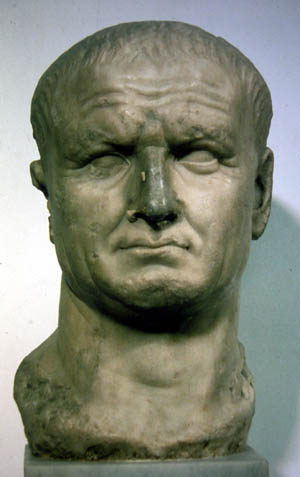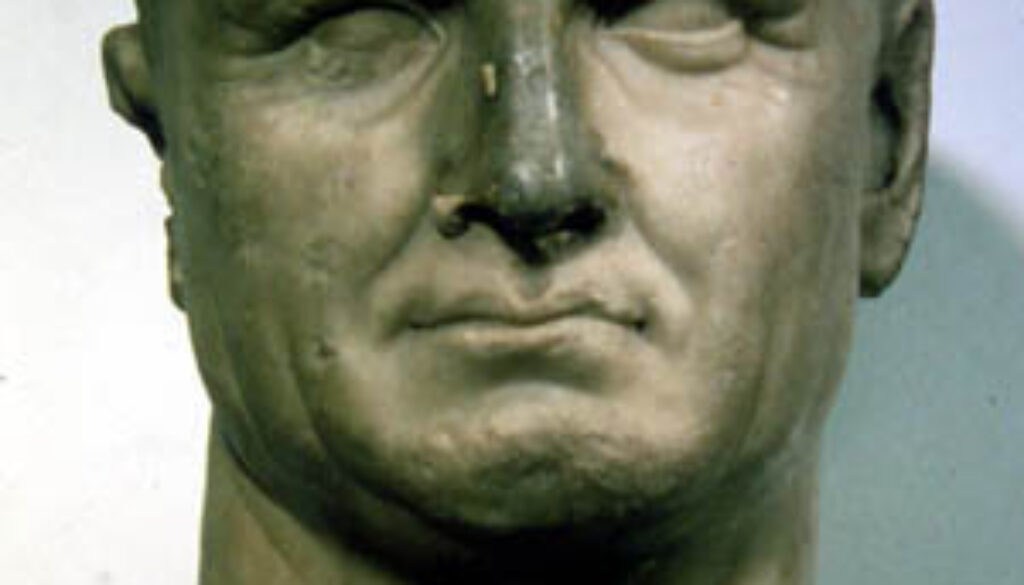The Course of Honor

I’ve been having great fun reading ‘The Course of Honor’ by Lindsey Davis about the Roman Emperor Vespasian and his girlfriend Antonia Caenis.
Davis is the author of the murder mystery series set in Rome that features Marcus Didius Falco. ‘The Course of Honor’ is not a mystery, but rather a novel about the relationship between two historic figures whom Davis brings to life by a skillful telling of their stories which intertwine, then separate, and then come together again.
It was Davis’ first (and favorite) book, but it wasn’t published until the Falco series became popular. It is told from the point of view of Caenis, who begins life as a palace slave with an aptitude for secretarial work. She later becomes the slave of Antonia Minor, the daughter of Marc Antony and Augustus’ sister Octavia. When Antonia frees her, she becomes Anonia Caenis.
The title refers to the series of offices a respectable Roman of the senatorial class is expected to attain during the course of his career. Because of laws passed by Rome’s first emperor, Augustus, Vespasian was prevented from marrying Caenis, a fact they both have to accept during their initial love affair.
He winds up marrying Flavia Domitilla and having two sons, Titus (the good one) and Domitian (the bad one), both of whom ultimately succeed Vespasian as emperor — but that’s getting ahead of the story.
The story of Vespasian and Caenis is set against the backdrop of the murders and poisonings of the Julian emperors who succeeded Augustus: Tiberius the pedophile, Caligula the madman, Caludius the well-intentioned nitwit, and finally Nero who famously fiddled while Rome burned, and is also known for murdering his mother and kicking his pregnant wife to death.
In an era when none of the members of the imperial family could trust any of the others, the emperors turned the running of the empire over to their personal slaves and freedmen (and freedwomen). Antonia Caenis becomes one of the most influential people in Rome, and she helps Vespasian’s career along, even though they seldom see one another.
The rest, as they say, is history: Vespasian becomes a general and conquers Britain and Judaea. After Nero commits suicide we enter the year of the four emperors. Galba, Otho, and Vitellius quickly come and go, and Vespasian — now a widower — assumes the purple and resumes his love affair with Antonia Caenis.
With the spoils from the sack of Jerusalem, he builds the famous Flavian amphitheatre, better known as the Colosseum, probably the best known symbol of ancient Rome.
It’s a great story, beautifully told, and it’s all true. We get a glimpse of Vespasian’s wit on his deathbed, but it needs a bit of explanation: Julius Caesar and Augustus were both deified after they died, so just as Vespasian is giving up the ghost, he exclaims, “I think I’m becoming a god.”
